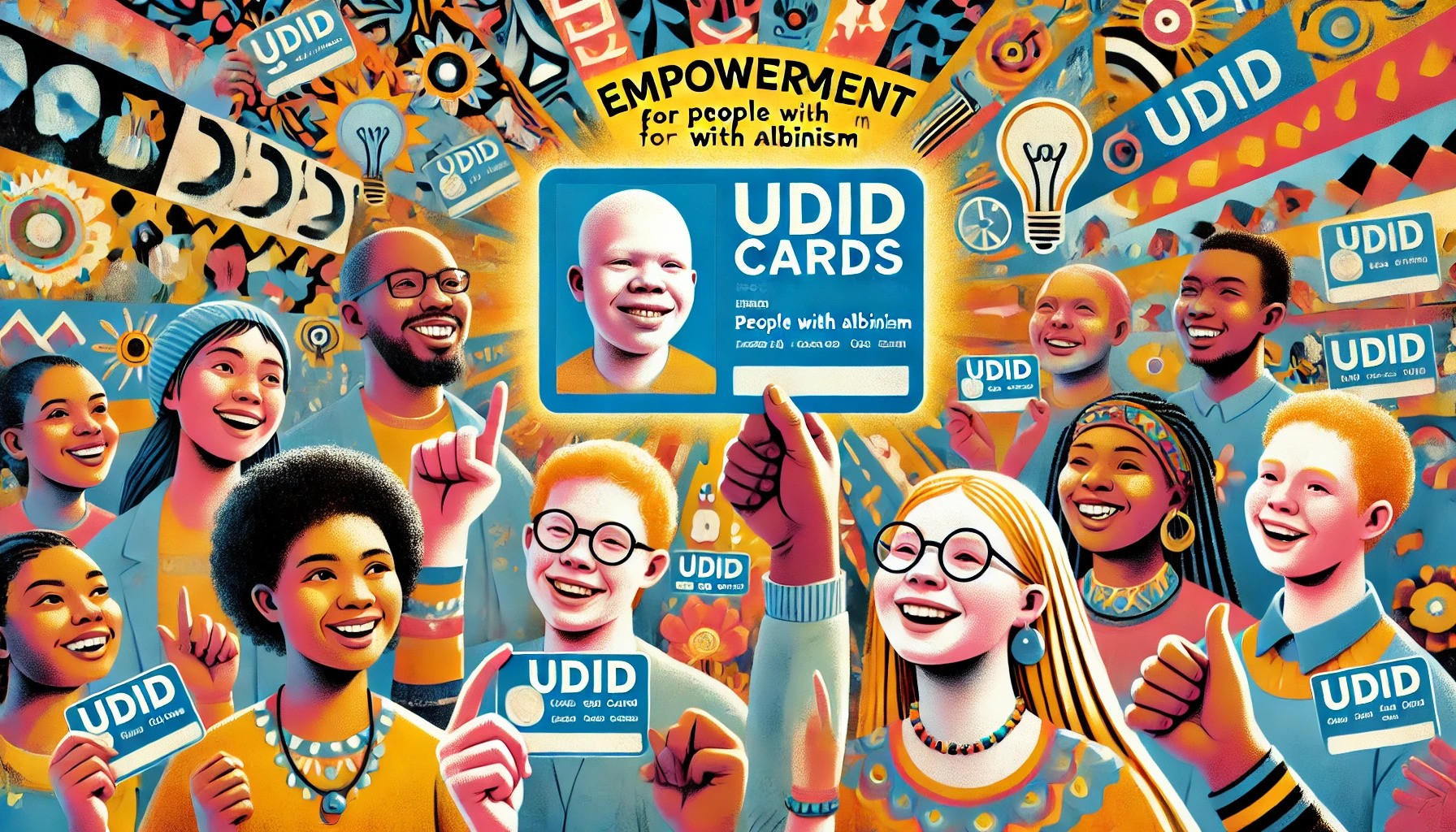Summary
For people with albinism in India, the Unique Disability ID (UDID) card is a transformative tool that provides access to essential healthcare, educational support, employment opportunities, and social inclusion.
The UDID card acknowledges their condition and helps alleviate challenges related to vision problems and skin sensitivity. This article highlights the benefits of the UDID card, including improved access to medical care,
educational accommodations, job reservations, and social acceptance. It outlines the process to obtain a UDID card and emphasizes the role of the Indian Albinism Foundation in raising awareness and supporting individuals
through the application process. With the UDID card, people with albinism can achieve greater empowerment and integration into society.

A Passport to Inclusion: How the UDID Card Transforms Lives
Imagine a world where a simple piece of plastic could transform your life. It might seem a stretch, but for people with albinism in India, the Unique Disability ID (UDID) card is a passport to a more inclusive society.
For Priya, a spirited young woman with albinism, navigating the bustling streets of Mumbai used to feel like walking through a fog. With her UDID card, Priya now holds a key to clarity and empowerment. This card doesn’t just
verify her condition; it opens doors to resources, rights, and a sense of belonging.
Understanding the UDID Card
The UDID card, launched by the Government of India, serves as a single document for identification and disability certification. For people with albinism, characterized by a lack of melanin resulting in vision problems and skin
sensitivity, the card can be a game-changer. This unique ID not only acknowledges their condition but also provides access to various benefits like reservations in education, employment, and health services.
Benefits of the UDID Card for People with Albinism
- Albinism often comes with vision issues and heightened sensitivity to sunlight, leading to frequent medical needs. The UDID card facilitates access to necessary healthcare, including subsidized treatments and aids.
- With visual impairment being a common challenge, the UDID card ensures reservations in educational institutions and provides for accommodations like assistive technologies and reading materials.
- The UDID card entitles holders to reservations in government jobs and support for self-employment initiatives. This opens up opportunities that might otherwise be inaccessible due to societal biases and physical challenges.
- Perhaps most significantly, the UDID card fosters social acceptance and reduces the stigma associated with disabilities, including albinism.
Getting a UDID Card: The Process
- Visit the UDID website and click on "Apply for Disability Certificate & UDID Card." Fill in your personal details accurately and submit the registration form.
- Schedule an appointment with a recognized medical authority, such as a government hospital. Undergo a medical assessment to obtain a disability certificate detailing your condition and the percentage of disability.
- Return to the UDID website, upload your disability certificate, a recent passport-sized photograph, and proof of identity such as Aadhaar card, Voter ID, or Passport. Ensure that all documents are clear and legible.
- Review and submit your application online. You will receive an acknowledgment receipt with a reference number to track your application status.
- Your application and documents will be verified by the authorities. You may be contacted if additional information is needed. Once approved, your UDID card will be issued.
- The card will be sent to your registered address, typically within a few weeks. You can also download a digital version from the UDID website.
Raising Awareness: A Role for Everyone
The Indian Albinism Foundation (IAF) is at the forefront of advocating for the rights and visibility of people with albinism. The IAF not only supports individuals in navigating the UDID application process but also works tirelessly
to educate the public about albinism. By partnering with schools, communities, and media outlets, the foundation helps dispel myths and foster acceptance.
Conclusion: A Card That Makes a Difference
The UDID card is more than just an ID; it’s a tool for empowerment and integration. For people with albinism, it represents a step toward equal opportunities and recognition. As we continue to educate and support our communities,
we can ensure that every individual, regardless of their condition, has the chance to lead a fulfilling life.
So, what’s stopping you from helping spread awareness and making a difference today?